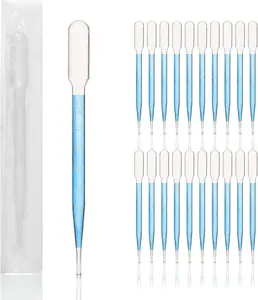Introduction to Measuring Tools for Liquid Ingredients
When it comes to culinary creations or precise laboratory measurements, measuring tools for liquid ingredients play a crucial role. These tools ensure accuracy in measurement, which is essential for both cooking and scientific experiments. With various types available in the market, understanding their applications and features is vital for every professional, home cook, or science enthusiast.
Types of Measuring Tools for Liquid Ingredients
There is a wide range of measuring tools for liquid ingredients suited for different requirements and purposes. Below are some key types:
- Measuring Cups: Available in various sizes, these cups can be used for both dry and liquid measurements. Common materials include plastic, glass, and stainless steel.
- Liquid Measuring Jug: Typically made of glass or plastic with clear markings, they are ideal for measuring larger quantities, especially for liquids like milk or water.
- Spoons: Standard measuring spoons are essential for small quantities, providing accuracy for baking and cooking.
- Graduated Cylinder: Used primarily in laboratories, this tall, slender container has precise markings for accurate liquid measurement.
- Kitchen Scale: While primarily for weight, many scales now feature a liquid conversion option, offering flexibility in measuring both volume and weight.
Applications of Measuring Tools for Liquid Ingredients
In both culinary and scientific fields, measuring tools for liquid ingredients serve a multitude of purposes. Their applications include:
- Culinary Arts: Precise measurements in recipes ensure the perfect balance of flavors and textures in cooking and baking.
- Pharmaceutical Industry: Accurate dosing is achieved using measuring tools, ensuring patient safety and effectiveness of medication.
- Laboratory Research: Precision is critical in experiments where the concentration of solutions can affect outcomes, making accurate measurement paramount.
- Cosmetic Formulation: The beauty industry relies on measuring tools to create products with consistent quality and effectiveness.
- Home Brewing: Craft brewers depend on precise measurements to create their unique flavors and ensure successful fermentation processes.
Features and Advantages of Measuring Tools for Liquid Ingredients
The measuring tools for liquid ingredients come with various features and advantages that enhance their usability and effectiveness:
- Accuracy: Precise measurements contribute to successful culinary and scientific outcomes, reducing the margin for error.
- Easy to Read Markings: Clear and easy-to-read measurements allow users to achieve consistency by accurately measuring liquids.
- Material Versatility: Available in materials like glass, plastic, and stainless steel, these tools are designed for durability and ease of cleaning.
- Multi-Functionality: Some tools, like measuring cups, can be used for both liquids and solids, offering flexibility for various uses.
- Ergonomic Design: Many tools are designed for ease of pouring and handling, reducing spills and promoting efficiency in the kitchen or lab.





































